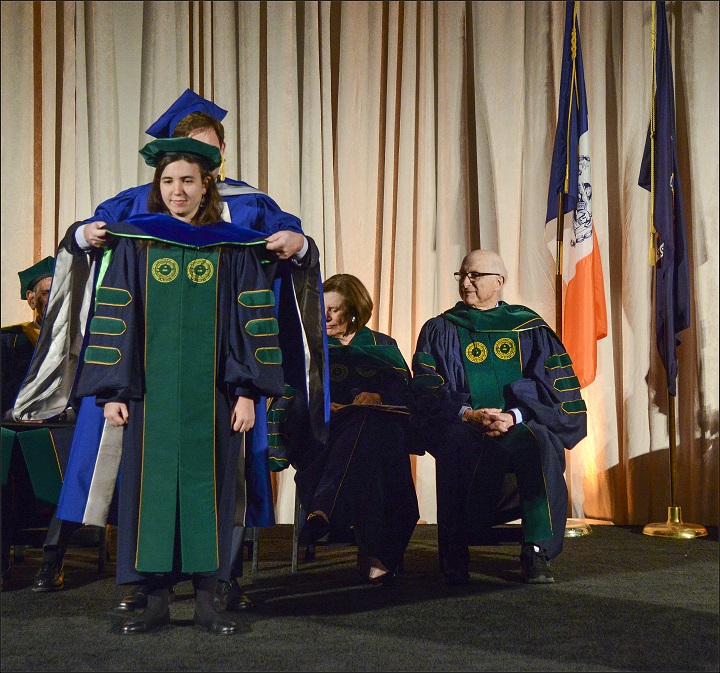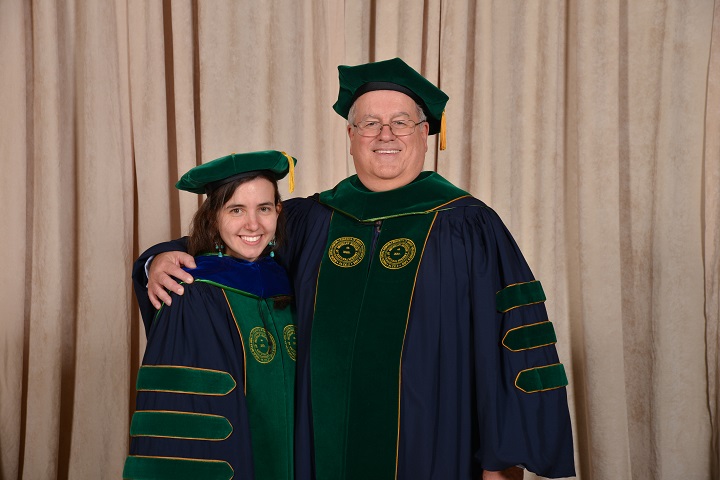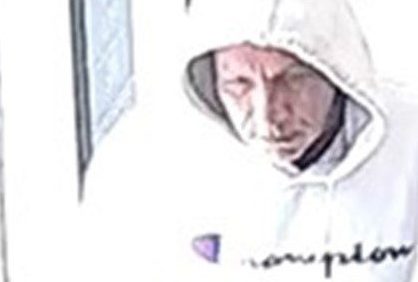In October, Stephanie Loria, a native of Glendale, earned a Ph.D. in comparative biology during a graduation ceremony at the Richard Gilder Graduate School at the American Museum of Natural History (AMNH) — the only American museum with the authority to grant a Ph.D. in comparative biology.
During her time studying at the AMNH, Loria focused on the diversity and evolution of scorpions in numerous Southeast Asian countries, gaining novel insights into the vision system of the insects.
In order to study these creatures, Loria needed to collect new scorpion specimens for her research and organized, fundraised and participated in field trips to seven countries across Southeast Asia.
“It’s great to have been able to go to school at a natural history museum. I started coming [to the AMNH] in high school taking classes after school and participating in the Science Research Mentoring Program,” Loria said. “While I was in college, I heard the museum had opened a graduate school and I was immediately interested and applied. Working at a museum is great if you are interested in biodiversity as the AMNH has such large collections allowing researchers to look at specimens that were collected from all over the world.”

Loria remembers spending time looking for insects to study in her backyard in Glendale. She also credits a teacher from her time at Sacred Heart School (now known as Sacred Heart Catholic Academy) as a pivotal motivator in helping her pick her career path.
“I’ve been interested in studying arthropods since I was 10 years old. I used to collect millipedes, spiders and insects from my small backyard in Glendale. Growing up in the city, my backyard was my window to nature,” Loria said. “My interest in arthropods grew because no one I knew seemed to have any interest in them, yet there was a whole other world around us that is so important for our lives … additionally, I became particularly interested in arthropod diversity because of my fifth-grade teacher at Sacred Heart, Diane Schmidt — she passed away several years ago — who taught us about diversity across all life on Earth and the Linnean classification system. While in school, I also started collecting the exoskeletons of cicadas and sometimes would bring them to class to the dismay of my school mates.”
Currently, Loria is finishing up projects at the AMNH before leaving for San Francisco early next year to start a postdoctoral at the California Academy of Sciences where she will continue her research on scorpions.
Aside from her work with insects, Loria is also interested in teaching science, and is the co-founder and president of the nonprofit organization The Metropolitan Society of Natural Historians.
The group holds monthly events which helps teach the general public about natural history.
“Events include tours of exhibits, research labs and guided nature walks led by scientists from around New York City,” Loria said. “At these events, the general public can learn about paleontology, marine biology, entomology, botany, genetics, astronomy, etc. from researchers who are experts in these fields. Our largest event is a free annual symposium, hosted in February to honor Charles Darwin, where eight scientists give PowerPoint presentations about their work.”




































